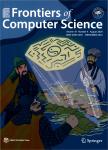Parallel intelligence: toward lifelong and eternal developmental AI and learning in cyber-physical-social spaces
Parallel intelligence: toward lifelong and eternal developmental AI and learning in cyber-physical-social spaces作者机构:The State Key Laboratory for Management and Control of Complex Systems Institute of Automation Chinese Academy of Sciences Beijing 100190 China School of Electrical Engineering Wuhan University Wuhan 430072 China Qingdao Academy of Intelligent Industries Qingdao 266109 China
出 版 物:《Frontiers of Computer Science》 (中国计算机科学前沿(英文版))
年 卷 期:2018年第12卷第3期
页 面:401-405页
核心收录:
学科分类:0402[教育学-心理学(可授教育学、理学学位)] 12[管理学] 040203[教育学-应用心理学] 04[教育学] 1201[管理学-管理科学与工程(可授管理学、工学学位)] 081104[工学-模式识别与智能系统] 08[工学] 0835[工学-软件工程] 0811[工学-控制科学与工程] 0812[工学-计算机科学与技术(可授工学、理学学位)]
基 金:This work was supported by the National Natural Science Foundation of China (Grant Nos. 61533019 71232006 61702519)
摘 要:Dear editor, Fundamentally, there are only two main approaches so far in artificial intelligence (AI): reasoning-oriented formal logic approach and function-oriented computational intelligence approach, so called Neats vs. Scuruffies, which is a reflection of the historical fight between two schools of thought for formalism and empiricism respectively in the field of AI that is continuing even today.



